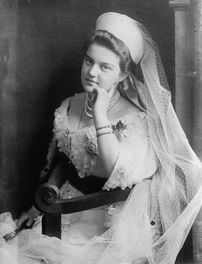 I have been perusing the fascinating work of Project1917, which documents day by day the thoughts and deeds of dozens of individuals who witnessed and participated in the events of the Russian Revolution. Here are some of the views expressed exactly 100 years ago, at the end of November 1917, about events in St Petersburg and Kiev, three weeks after the Bolshevik Revolution. Firstly, the Ukrainian-Russian writer Vladimir Korolenko, a life-long opponent of Tsarism, who initially welcomed the Revolution, but later became a critic of Bolshevik power: “Ukraine has been pronounced a republic. There is no centralised power in Russia. The country is falling apart. Maybe the healing process will begin from the provinces? However, it's not clear if the Rada has any authority.” Ukraine’s Central Rada had declared a Ukrainian People’s Republic opposed to Communist rule, and gained independence from Russia in 1918. But the healing process Korolenko spoke of took many years. Russia’s Civil War tore through Ukraine and the Russian ‘provinces’; peace was not restored until 1921. Korolenko spent the war years in Poltava, Ukraine, protesting against the atrocities committed by all sides in the conflict. The writer and philosopher Vasily Rozanov echoed Korolenko’s view: “Russia has disappeared in two days. In three days at most. Even the paper Novoe Vremya couldn’t be closed faster than Russia was closed. It’s astonishing that it fell to pieces all at once. The world has never experienced anything similar. There was no Tsardom left, no Church, no army, no working class. What is left, then? Almost nothing.” And I love this description of a trip to the theatre by the Grand Duchess Maria Pavlovna, a granddaughter of Tsar Alexander II and cousin of Tsar Nicolas II, which illustrates the immediate changes experienced by Russia’s elite after the Revolution. “One evening at the very beginning of the Bolshevist rule, my husband and I decided to go to the ballet. I had never before been in the Imperial Theatres otherwise than through a private entrance and in the imperial box, and I found it interesting to view the house from orchestra seats, as a private individual. We bought our tickets and went. At that time no one ever thought of dressing for the theatre so we went as we were. “We arrived when the spectacle had already begun. During the first interval we went into the foyer. The theatre was crowded by people from all walks of life. I remember that from the beginning I was shocked by the contrast between the well-known music and performance and the unusual, odd appearance of the house. “On our way back to our seats I looked up—it must have been for the first time—and saw the box on the right side of the stage which from time immemorial had been occupied by the imperial family. Framed by the heavy silk draperies, in the arm-chairs with the gilded backs, there now sat several sailors, their caps on their dishevelled heads and with them their ladies in woollen, coloured kerchiefs. “All things considered, there was nothing unusual in this sight, but nevertheless it affected me powerfully. My sight grew dim; I felt myself about to fall, and groped for the hand of my husband, who was walking beside me. Beyond that, I remember nothing. I came to myself after a thirty-minute fainting spell, the first and the last in my life, lying upon the hard oilcloth couch of the theatre's infirmary. The strange face of a doctor was bending over me and the room was filled with people who must have come to stare.” The Grand Duchess escaped from Russia, via Ukraine, in July 1918 and led a peripatetic life, settling in Paris, New York, Argentina and finally Germany. Many close members of her family who remained in Russia were murdered by the Bolsheviks. www.project1917.com
0 Comments
Leave a Reply. |
Keeping stories aliveThis blog aims to discuss historical events relating to the Jewish communities of Ukraine, and of Eastern Europe more widely. As a storyteller, I hope to keep alive stories of the past and remember those who told or experienced them. Like so many others, I am deeply troubled by the war in Ukraine and for the foreseeable future, most articles published here will focus on the war, with an emphasis on parallels with other tumultuous periods in Ukraine's tragic history. Archives
March 2024
Categories
All
|
 RSS Feed
RSS Feed
